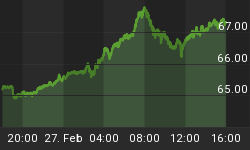Those who thought the situation in Greece was solved after prime minister Alexis Tsipras suddenly caved in to creditors' demands need think again.
Greek tax revenues are running well under expectations. A default looms in July unless the creditors give more money to Greece so that Greece can pay back the creditors. As convoluted as that sounds, that's precisely the way this madness works.
The creditors demand still more austerity but Tsipras said "no". Instead, Tsipras seeks an emergency meeting, but European Commission president Donald Tusk said "no" to that proposal.
Supposedly this standoff represents "renewed uncertainty".
Emergency Meeting Request Denied
The BBC reports EU Rejects Greek Request for Emergency Summit.
The head of the European Union has rejected Greece's request for an emergency meeting aimed at ending an impasse over the country's bailout.
Greece agreed to a third rescue package worth €86bn (£60bn; $94bn) last year and faces a looming debt payment. However, it has been unable to unlock the next loan instalment after clashing with its creditors over more reforms.
The International Monetary Fund and other European partners are demanding that Greece implement further austerity measures. They are looking to generate nearly €4bn in additional savings or contingency money in case Greece misses future budget targets.
But the left-wing government led by Alexis Tsipras has said it will not agree to any "additional actions" to what it had already signed up to last summer.
A special ministerial meeting was supposed to be held on Thursday, but Dutch Finance Minister Jeroen Dijsselbloem, who is in charge of the Greece negotiations, called it off.
Summit Request Denied
The Financial Times reports Donald Tusk Rejects Alexis Tsipras Summit Request.
Donald Tusk, the European Council president, has turned down a Greek request for an emergency summit on Athens' bailout and told eurozone finance ministers to do more to narrow their differences.
Without a deal on new austerity measures, Greece faces a default on €3.5bn in debt payments that come due in July.
Greece is fast running out of cash to pay salaries and pensions in May because of lagging tax receipts. To cover the gap Mr Tsipras's government has been strong-arming state entities, from the cash-strapped health service to the profitable water utility, to empty their bank accounts and place the funds with the central bank in a short-term loan arrangement.
Bailout negotiations have stalled over a request by the EU and the International Monetary Fund, Greece's main lenders, that Athens legislate €3bn in "contingency" budget cuts that could be triggered if the programme veers off-course and fails to produce projected surpluses.
Euclid Tsakalotos, the Greek finance minister, has told negotiators getting additional cuts through the Greek parliament is politically impossible, and has asked instead for lenders to accept across-the-board budget cuts in case targets are missed. EU and IMF negotiators have rejected that proposal, however, insisting the additional reforms be targeted carefully to ensure they do not damage economic growth.
"Renewed Uncertainty"
"I am convinced that there is still work to be done by the ministers of finance who have to avoid a situation of renewed uncertainty for Greece," Mr Tusk said after a phone call on Wednesday morning with Alexis Tsipras, Greece's prime minister.
Talk of renewed uncertainty is ridiculous. It's a certainty that what cannot be paid back, won't be paid back.
The only thing "uncertain" is the same that that's been uncertain since the beginning of the crisis: the timing of the credit event.
For more on the ridiculousness of the overused word "uncertainty", please see Uncertain Measures of Uncertainty; Fed Uncertainty Principle Revisited.















